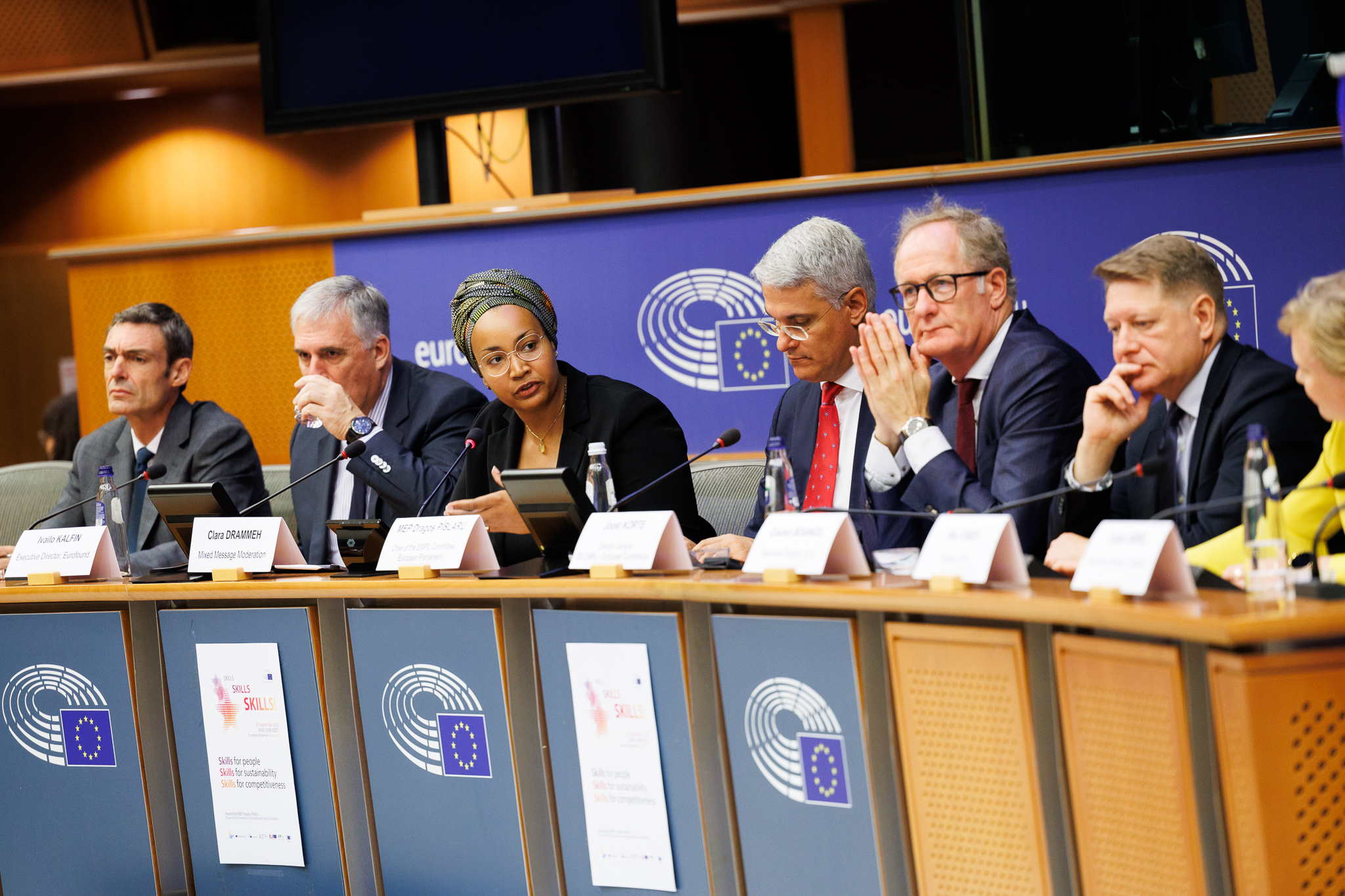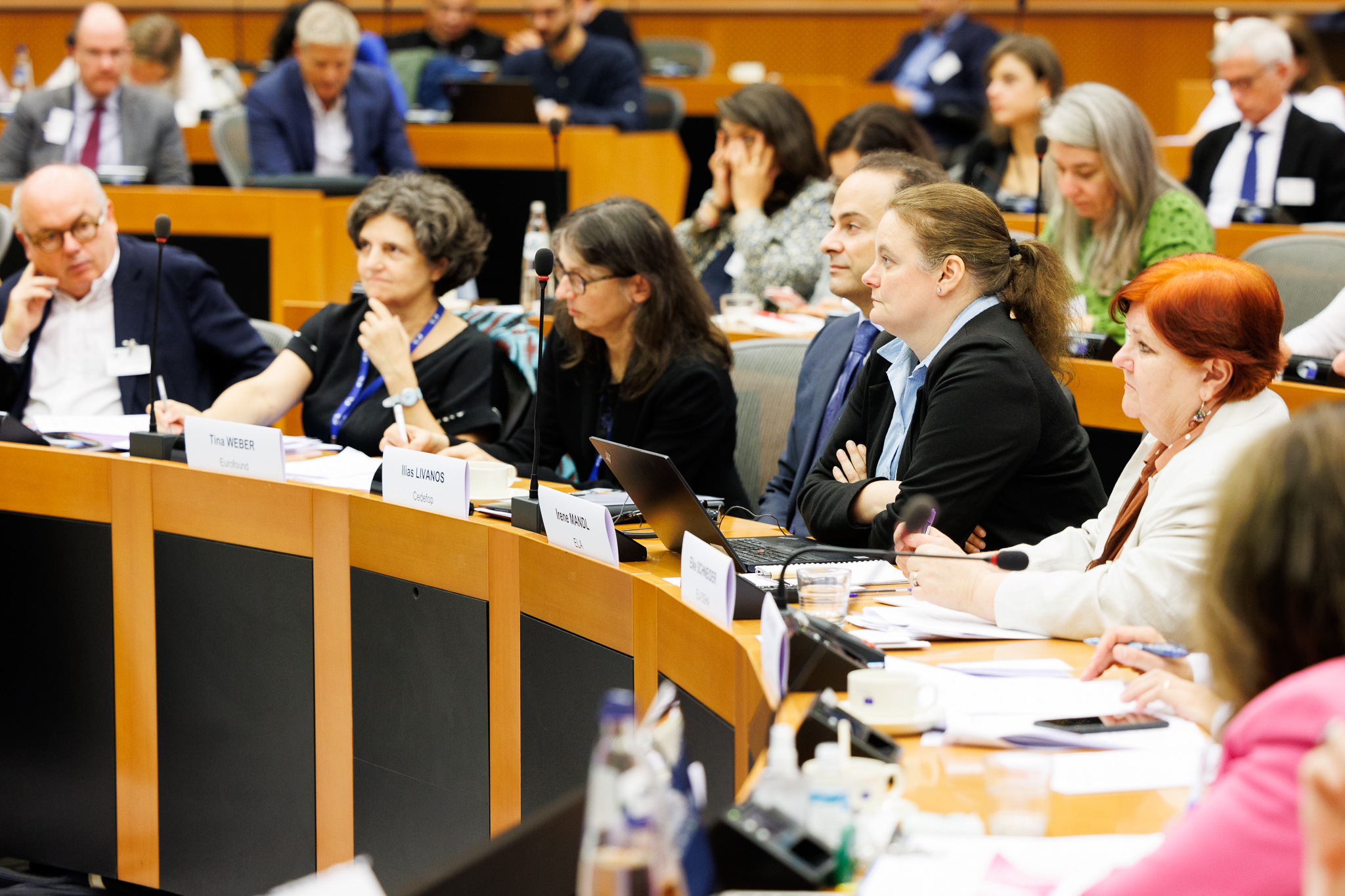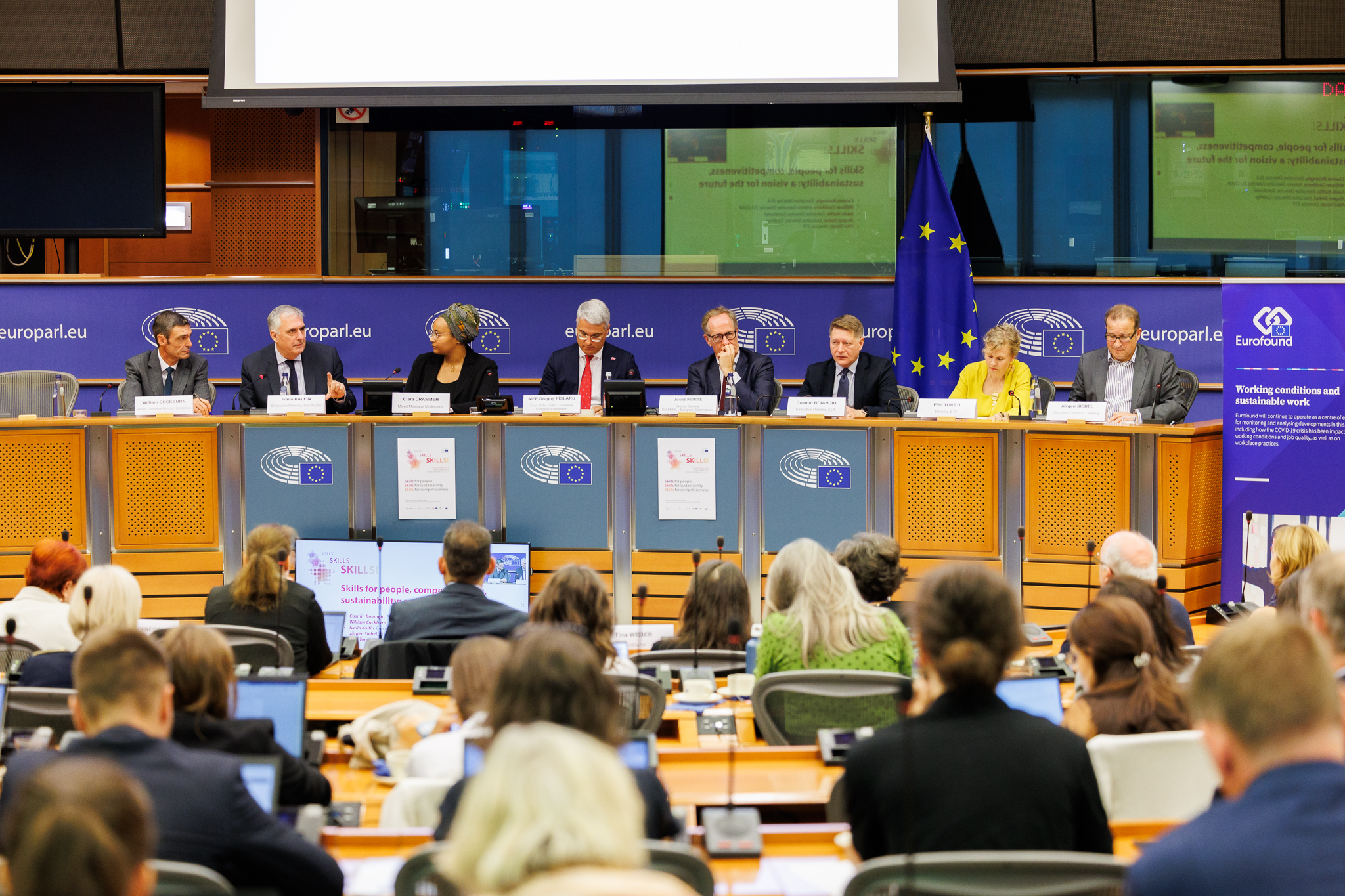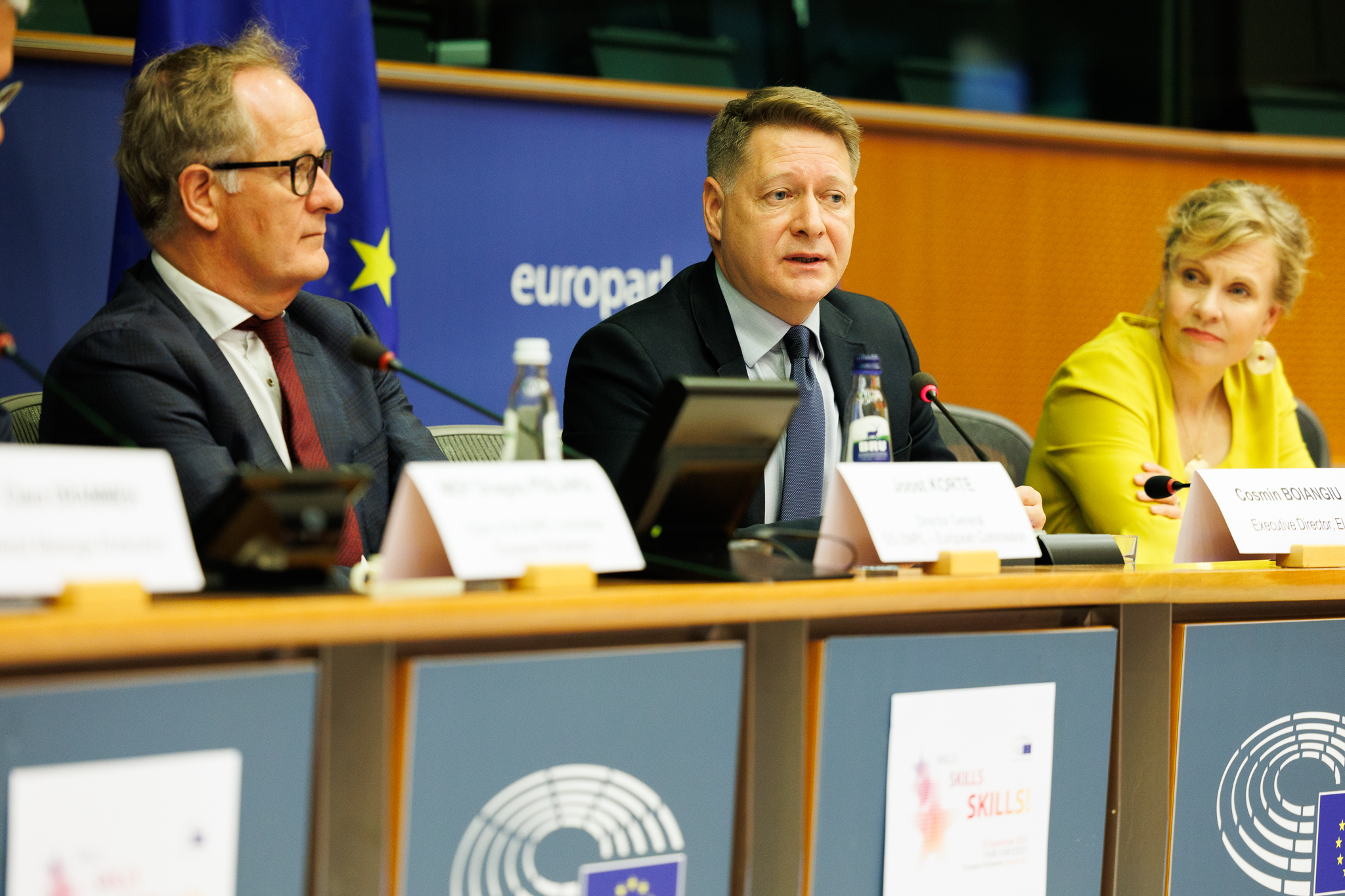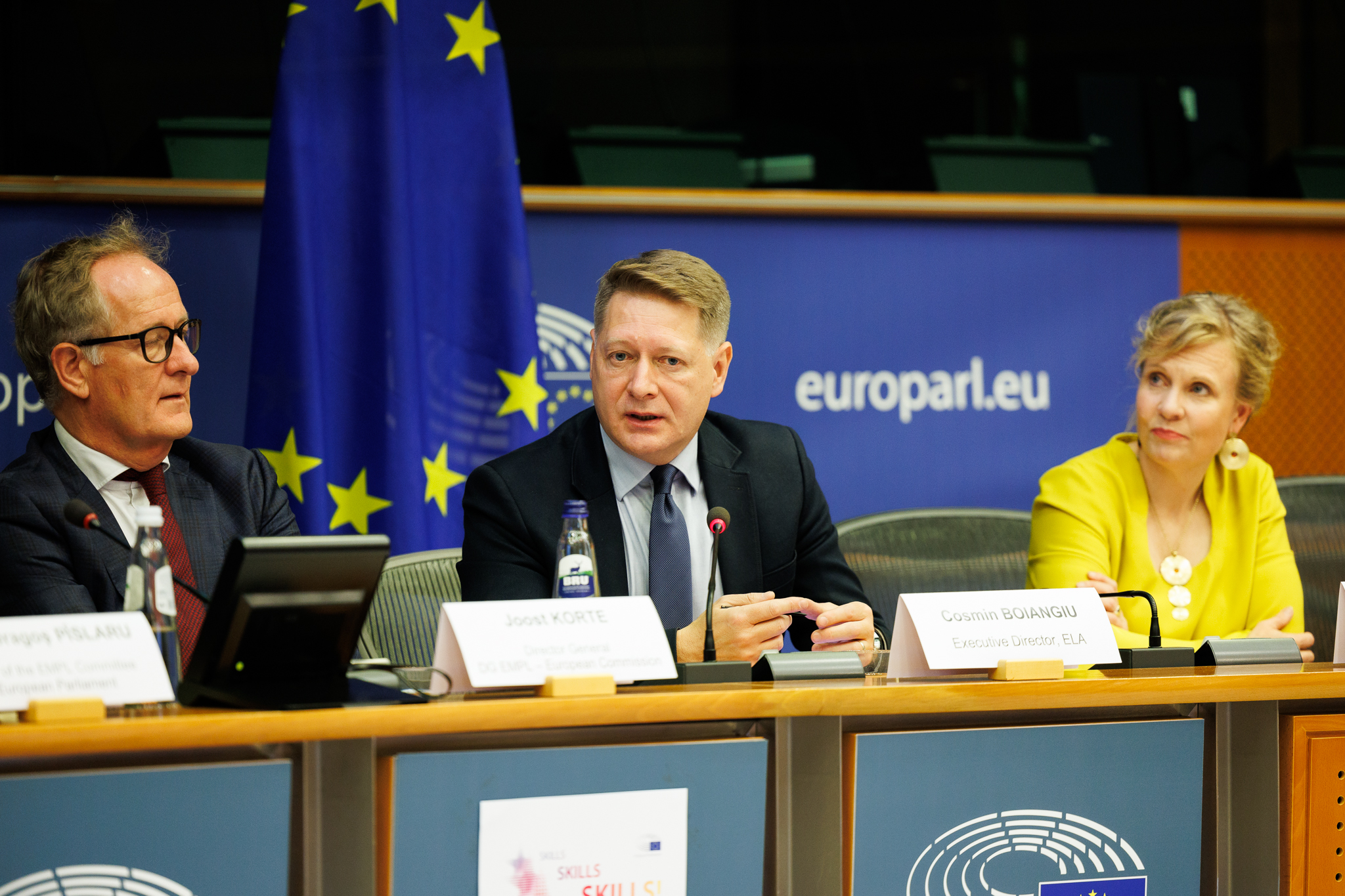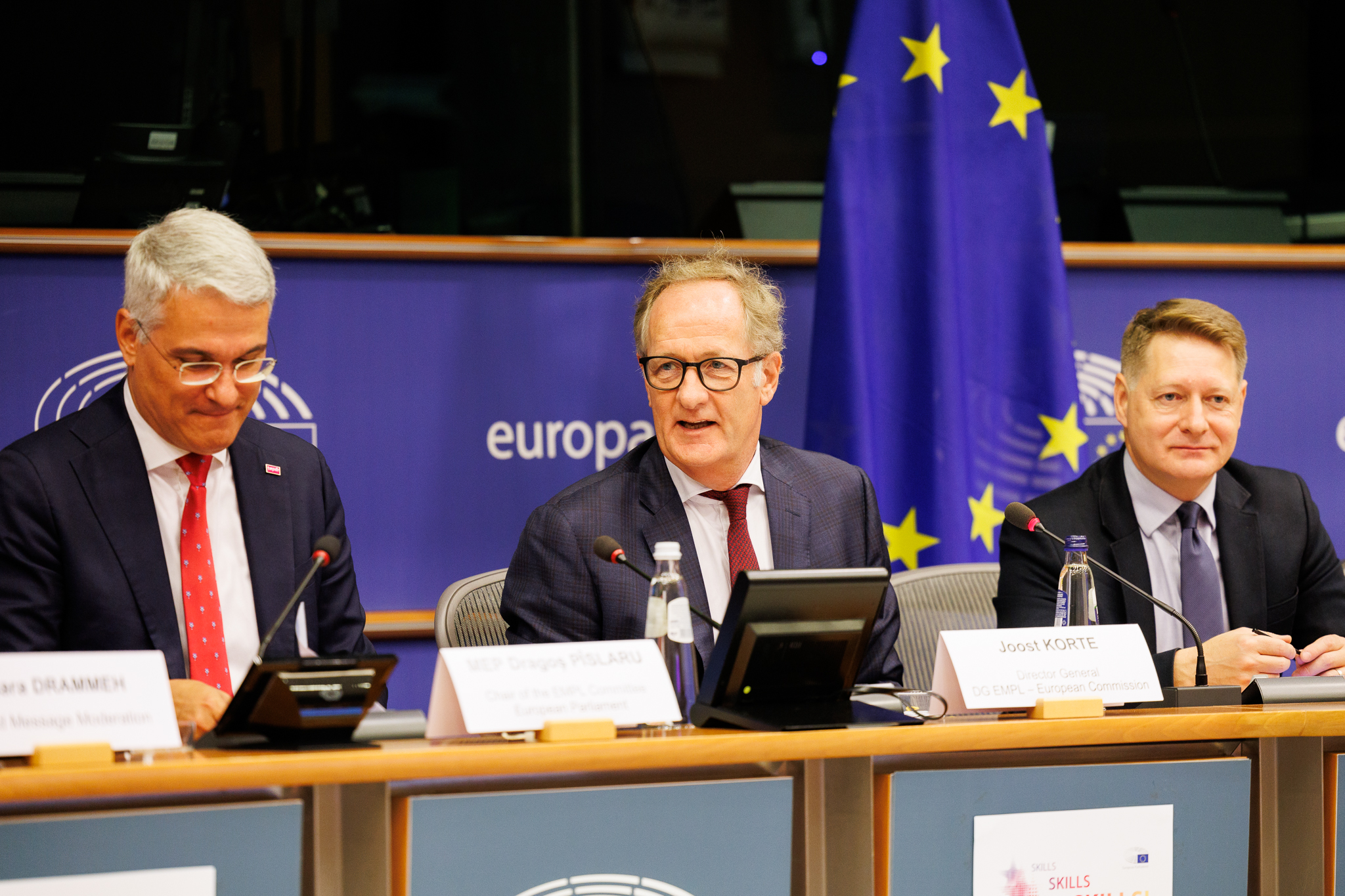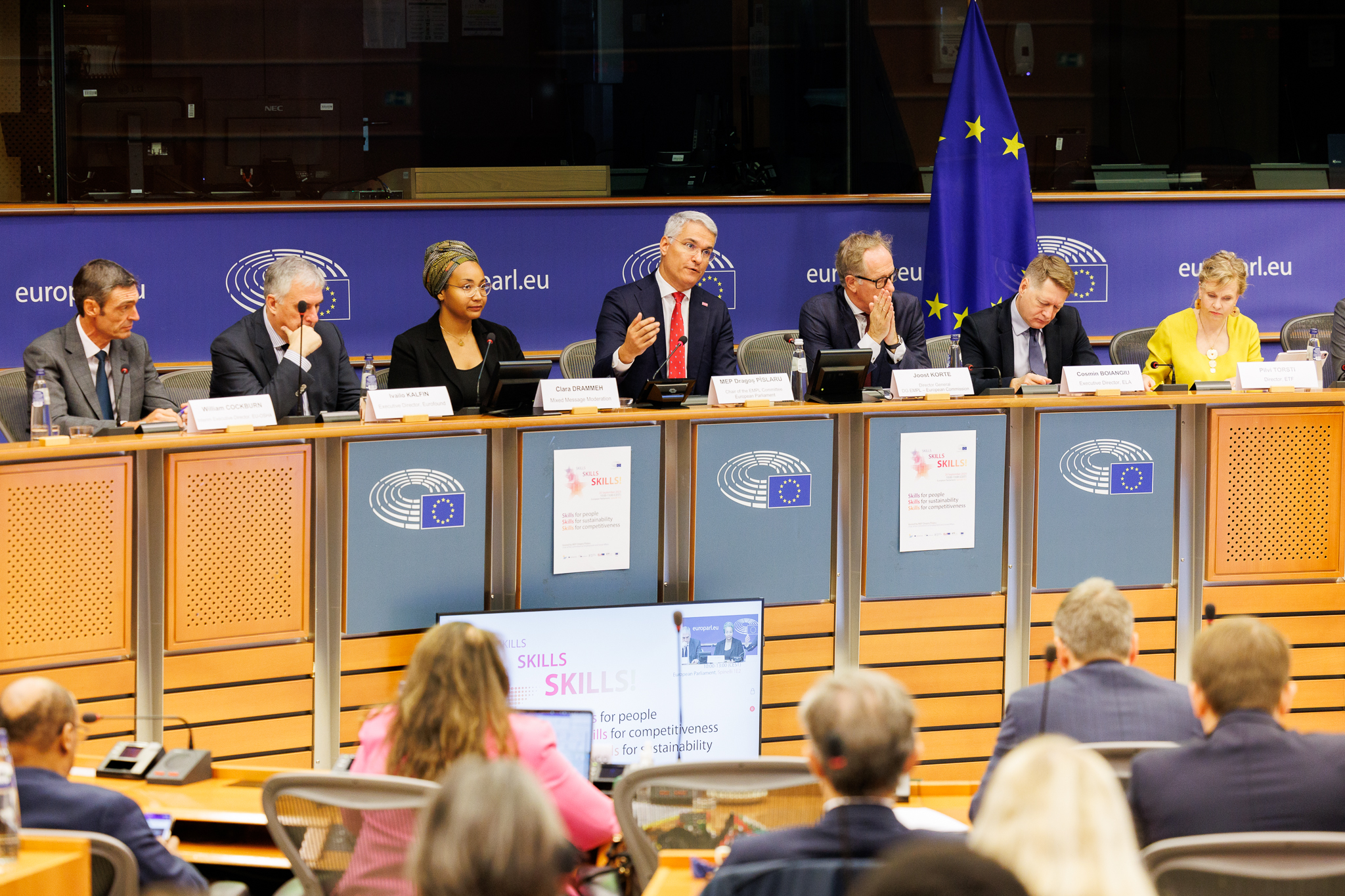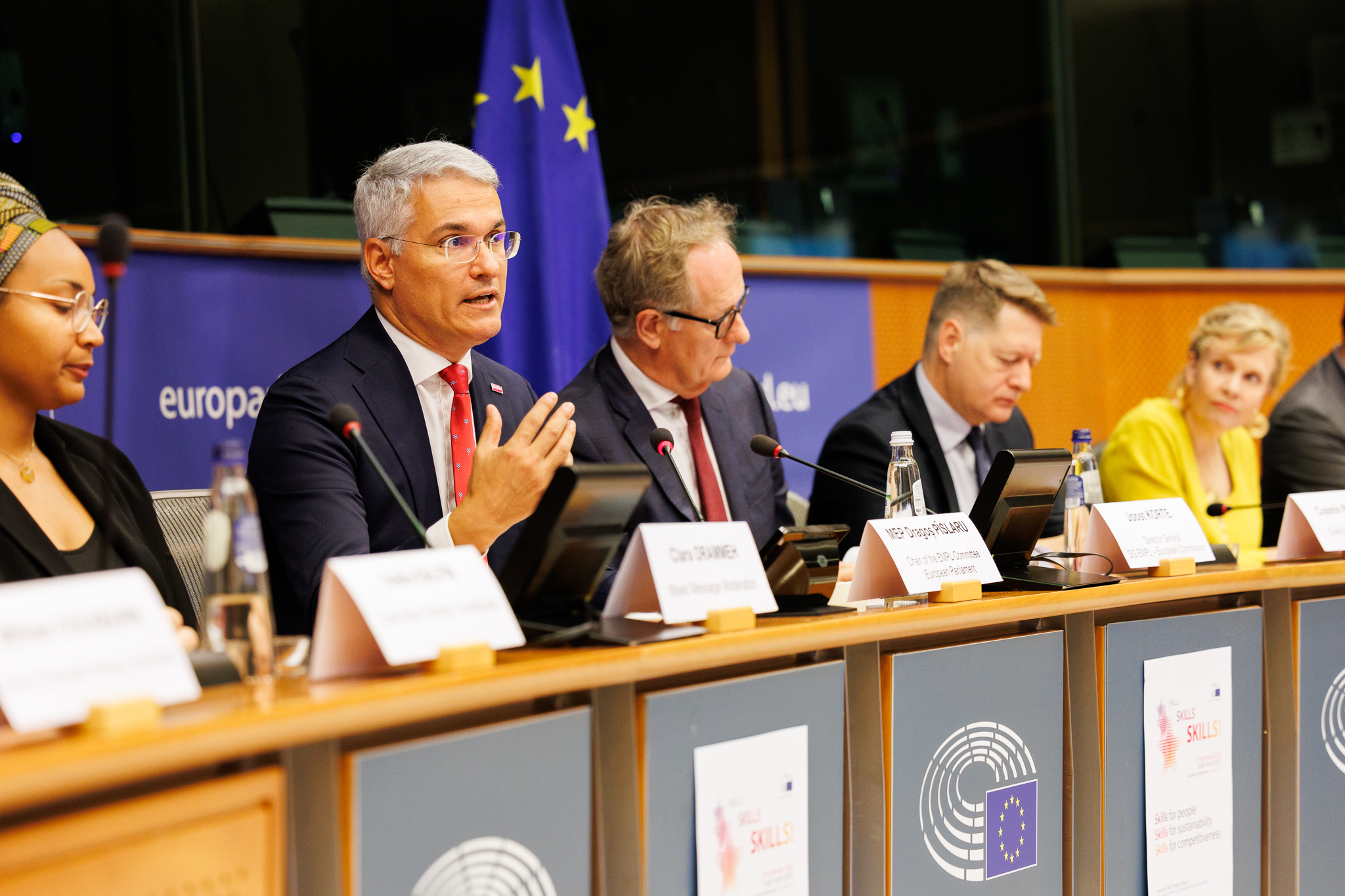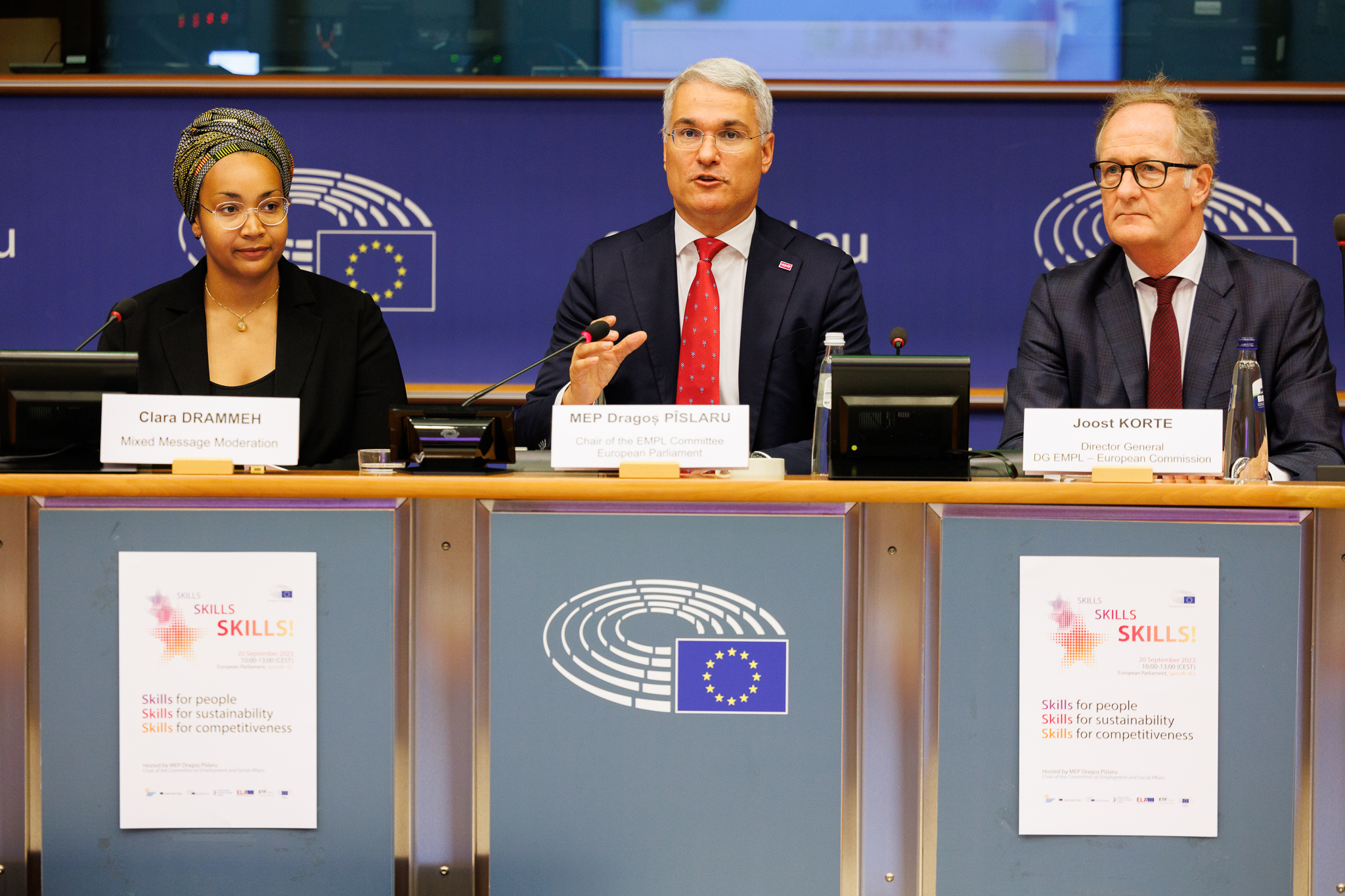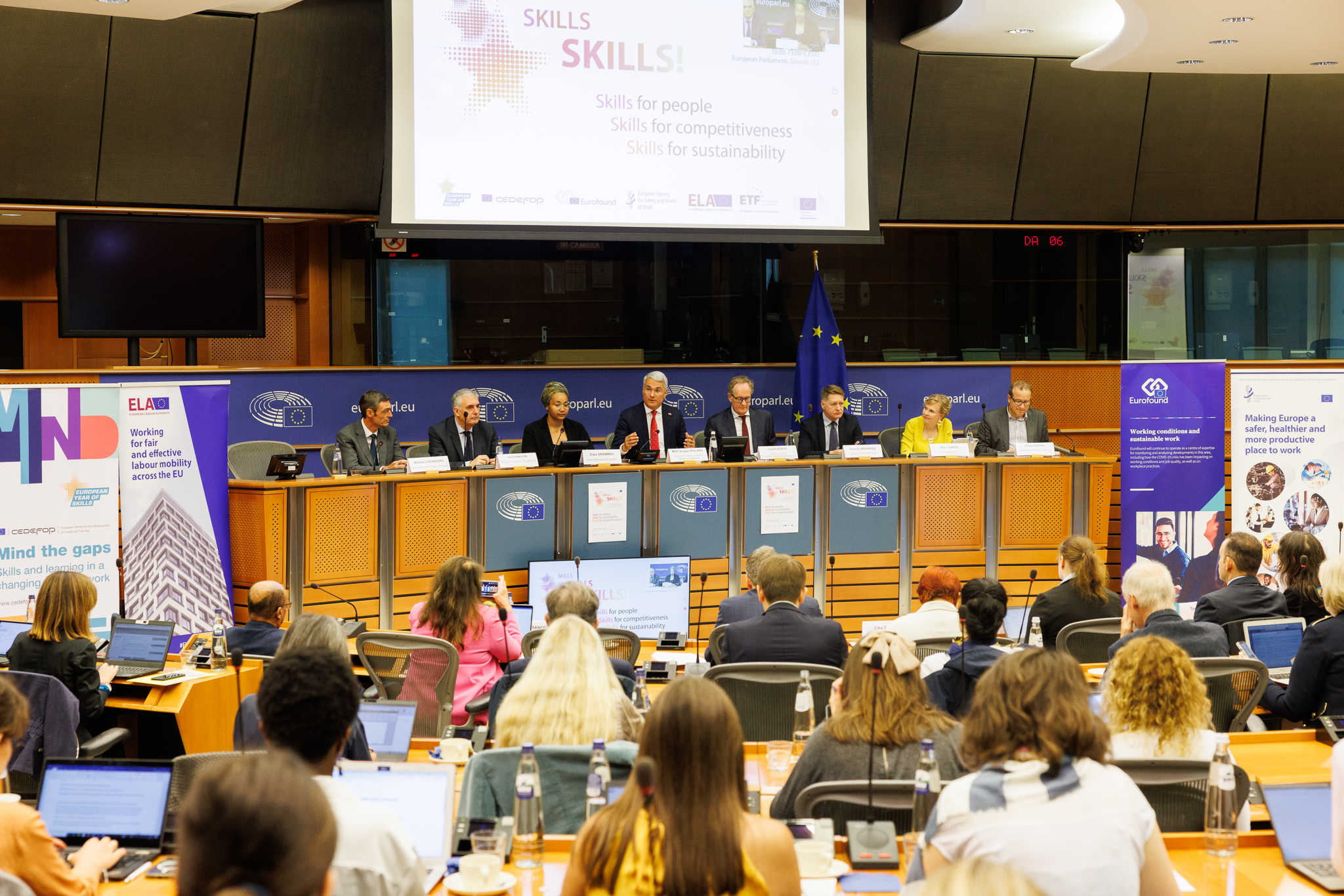The initiative was proposed by the Chair of the Employment and Social Affairs (EMPL) Committee Dragoș Pîslaru, MEP, co-hosted by the five EU agencies working in the field of employment, social affairs and inclusion, in partnership with the European Commission.
The initiative marks a milestone of the European Year of Skills, signalling the European Union's determination to focus on current and future skills needs. After introductory remarks by Dragoș Pîslaru, MEP, Chair of the EMPL Committee, and Joost Korte, Director-General at the European Commission’s DG Employment, Social Affairs and Inclusion, the directors of Cedefop, Eurofound, the European Agency for Safety and Health at Work (EU-OSHA), the European Training Foundation (ETF) and the European Labour Authority (ELA) shared their knowledge on the transformative power of skills that will have an impact in shaping Europe’s future.
The 120 participants in the room, and the 200 followers online – members of the European Parliament and the European Commission, policymakers, social partners, civil society and other stakeholders – engaged in an open and frank debate with directors and experts from the five social Agencies, about getting the balance right between challenges and opportunities to ensure the future is fair, healthy and safe for the EU and beyond. The agenda of the meeting included presentations and debates about the most relevant skills for people, competitiveness, sustainability, and how to get the right balance in meeting the skills needed for the green and digital transitions.
